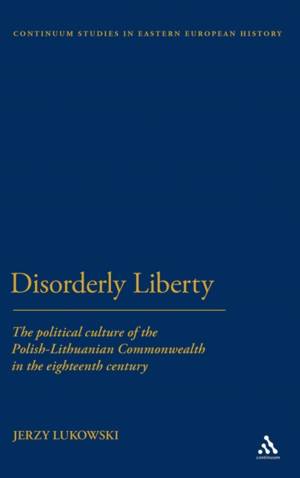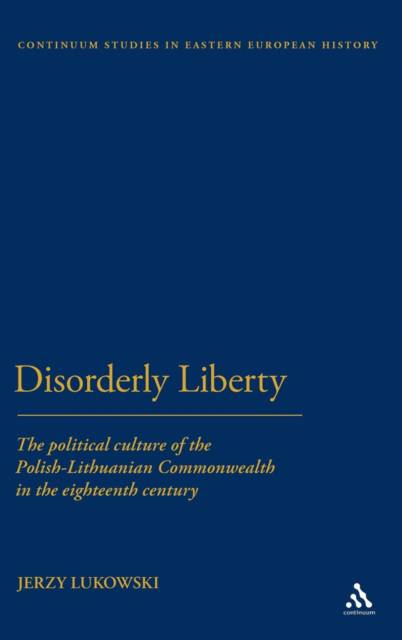
- Afhalen na 1 uur in een winkel met voorraad
- Gratis thuislevering in België vanaf € 30
- Ruim aanbod met 7 miljoen producten
- Afhalen na 1 uur in een winkel met voorraad
- Gratis thuislevering in België vanaf € 30
- Ruim aanbod met 7 miljoen producten
Zoeken
Disorderly Liberty
The Political Culture of the Polish-Lithuanian Commonwealth in the Eighteenth Century
Jerzy Lukowski
€ 322,45
+ 644 punten
Uitvoering
Omschrijving
During the eighteenth century Europeâ ~s republics may have been an integral part of the international scene, but they were marginalised or in decline. When, in 1772, the Commonwealth of Poland-Lithuania suffered a massive loss of territory to its three more powerful neighbours, Russia, Prussia and Austria, Edmund Burkeâ ~s question Poland was but a breakfast where will they dine?â ~ was asked across the continentâ ~s lesser states, republics and non-republics alike. The slow, almost inevitable, process of Polandâ ~s digestion may have contributed to the relative ease with which that process was accepted in European chanceries. Poland was not a state which was a shaper of history, but was on the receiving end of the attentions of more dynamic neighbours. Yet it was, until the process of its disposal got under way, the largest state in Europe after Russia. Lukowski considers how the republican ideals and the political culture of its ruling class and nobility remain part of the historical legacy not only of what is today Poland, but also of the successor states: Lithuania, Ukraine, Belarus.
Specificaties
Betrokkenen
- Auteur(s):
- Uitgeverij:
Inhoud
- Aantal bladzijden:
- 368
- Taal:
- Engels
- Reeks:
Eigenschappen
- Productcode (EAN):
- 9781441148124
- Verschijningsdatum:
- 5/08/2010
- Uitvoering:
- Hardcover
- Formaat:
- Genaaid
- Afmetingen:
- 157 mm x 236 mm
- Gewicht:
- 680 g

Alleen bij Standaard Boekhandel
+ 644 punten op je klantenkaart van Standaard Boekhandel
Beoordelingen
We publiceren alleen reviews die voldoen aan de voorwaarden voor reviews. Bekijk onze voorwaarden voor reviews.







